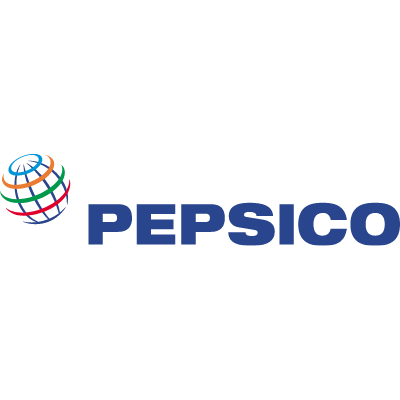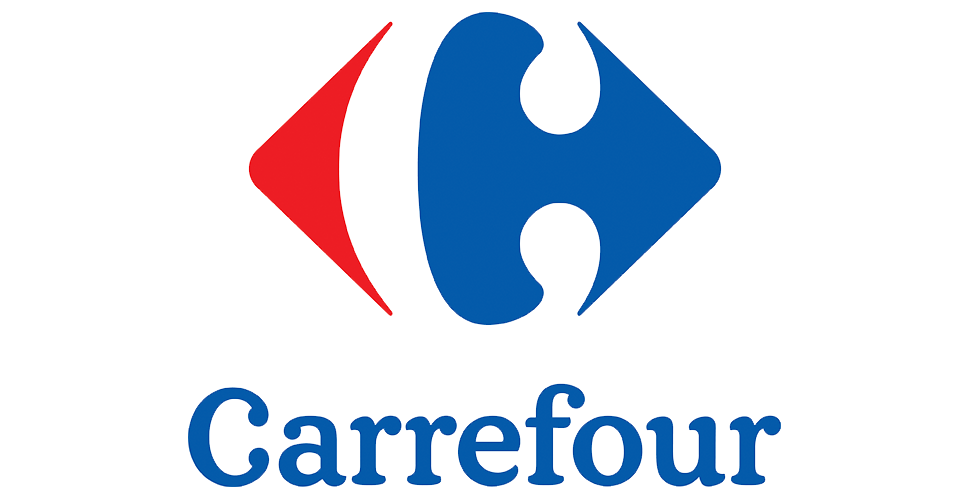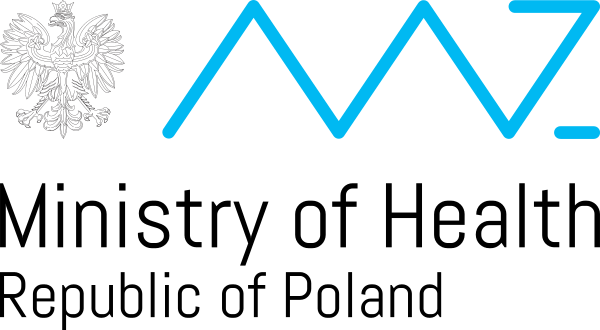When choosing a CMS for your organization, you need to consider many factors to make an informed decision and ensure the highest ROI. In this article, you will find a list of 15 arguments that will back your choice of Drupal from among other content management systems.
#1 Build almost everything with Drupal
Drupal is an open-source web content management system (CMS) written in PHP. It is very flexible, allowing you to build pretty much anything you can imagine: personal websites, one-pagers, corporate web portals with many functionalities, social networks, web applications, e-commerce stores or APIs.
This flexibility is largely down to Drupal’s modular approach, which allows developers to plug in different modules and functionalities as needed. More than 50,000 modules are available for Drupal and can be easily found in the Modules section on the drupal.org website. It is like a Lego set for web development. You can start with a basic structure and add, remove, or rearrange the pieces to create a unique and customized web presence. You can build even the most complex of websites using Drupal modules.
According to BuiltWith, almost 1.7 million websites are powered by Drupal. This vast number includes a variety of industries and applications, demonstrating Drupal’s versatility and robustness.
There are government pages built in Drupal. Soccer clubs have built their online presence with Drupal. Big enterprises such as IKEA use Drupal. Quite a few non-profit organizations, including a foundation supporting research to find a cure for Parkinson’s disease, use it too. There is even a special community section helping to build non-profit websites and stimulate the use of Drupal in this area.
Therefore, when choosing Drupal as your content management system, you will be in excellent company.
#2 Everyone can build using Drupal
Drupal, known for its user-friendly nature, is an accessible tool for individuals at varying skill levels. Even a novice Drupal developer can build something substantial. This inclusivity positions Drupal perfectly within the low code trend, which emphasizes the creation of applications or business processes with minimal coding skills.
For instance, you can assume the role of a site builder and construct complex systems without actually writing extensive code. This is possible due to Drupal’s virtually limitless configuration possibilities. These possibilities invite individuals who can focus on customization and fine-tuning of the web application mechanism to contribute significantly to the development process.
Furthermore, Drupal’s intuitive interface and extensive online resources make it an excellent learning platform for those new to web development. The community support is extensive, with numerous online forums and tutorials available to assist in overcoming any hurdles. This makes Drupal not just a tool for creating powerful web applications, but also a medium for learning and growth in the field of web development.
Read more on Web development:
Top web development frameworks you should know about in 2024
A web application security checklist for every stage of development
React best practices for web development
Angular vs. React—which one to choose
Micro frontends: pros and cons
Blazor vs. React—key differences, pros and cons, and use cases
What is Blazor, and why should you use it?
Blazor vs. Angular: which is better for web development in 2023
#3 Drupal is already a mature technology
Drupal is a content management system (CMS) with a rich 20-year history, and it continues to thrive and be widely used in the digital landscape. Originally, Drupal was a simple PHP script that incorporated many ready-made solutions we recognize from websites and web applications. Moreover, it included APIs that deliver data to various locations and devices connected to the Internet on a daily basis.
As the digital world evolved, so did Drupal. A while back, someone coined the term “content management framework, but Drupal’s capabilities extend beyond just managing content. Today, the emphasis is on creating a comprehensive digital experience, and Drupal rises to these challenges both technically and in terms of meeting business objectives.
The latest iteration of Drupal Core is version 10. More than 12 years after its first release, Drupal 7 is still available for download, but goes “end of life” on 5 January 2025. This means that it will no longer be supported, and those currently using it should consider migrating to Drupal 10.
#4 Drupal is a modern technology
Since version 8, the Drupal Association—an organization that supports the Drupal software project, the community, and its growth—has decided to follow the best proven practices available in the PHP environment while taking care of stability and backward compatibility. Its module system is integrated with Composer, the main package manager available in this technology. Successive versions of Drupal are dependent on the Symfony framework, and therefore, Drupal’s release cycles are linked to long-term versions of this framework.
Additionally, with each major release, a so-called initiative is created to prepare developers and their scripts for upcoming changes. In the case of version 9, this has gone so far that there is a robot that successively checks the sources of modules and proposes changes to their maintainers that solve compatibility issues with new versions of the framework.
#5 Get more leads for your business
Switching to Drupal can considerably increase the number of leads you get through your website. This is possible thanks to the many possibilities to build forms with the webform module and the number of ways to build landing pages either with the paragraphs module or the built-in layout manager. Thanks to a rich module ecosystem, you can build any architecture you want and replace existing solutions on your old website.
Additionally, there are plenty of modules that help to automate and provide insights about the website itself and users’ behavior on it. Some modules will make your site more secure, others make self-audits. Even without Google Analytics, you can turn on built-in modules for simple statistics or track the users filling in your forms. This allows you to check if the content available on your website brings new conversions.
#6 Personalize it to your needs
Drupal enables personalized user experiences based on factors such as gender, geolocation, browsing history, and user device. The Smart Content modules allow real-time, anonymous website personalization on any Drupal site, empowering administrators to display different content for anonymous or authenticated users based on browser conditions.
For example, if you have a shopping website, you can use Voting API module to create a recommendation engine that will help a user to find the most desirable products.
On the other hand, you can show content based on geolocation using Geo API module without the need for extensive coding. It automatically converts address data into latitude and longitude values and calculates the distance to that point. In fact, this module is a unified API allowing you to use geolocation services. You can choose from different providers of such services (ArcGISOnline, BingMaps, File, GoogleMaps, Nominatim, OpeneStreetMap) by using the same set of functions.
It goes without saying that a personalized user experience is what every marketing department craves, as it means more conversions and higher profit for your business.
#7 Ensure robust security
Being an open-source project, Drupal benefits from the scrutiny, maintenance, and continuous contributions of over a million developers worldwide, enhancing its security. Furthermore, Drupal maintains a dedicated security team that consistently collaborates to identify and release security fixes. The project’s robust coding standards and rigorous community code review process play a crucial role in preventing many security issues altogether.
Furthermore, in collaboration with the Drupal Association, the Drupal security team oversees Drupal Steward, an economical web application firewall (WAF) designed to fill the gap between the availability of a security release and the completion of a site update with the new patch.
Consequently, organizations in critical sectors like banking, government, public administration, and healthcare choose to adopt Drupal due to its ability to maintain high security standards.
#8 Ensure high performance
To get performance at the right level in the core Drupal, the Big Pipe technique invented by Facebook engineers was used. Each part of the application displayed by Drupal can have independent storage properties and be sent in parallel by the server to the browser, which speeds up the appearance of the content.
There is zero configuration. The functionality has been placed in the core and you do not need to do anything to run it. In addition, the system takes care of the rendering order of individual elements so that no overlapping occurs.
Performance is a crucial factor for your business website. In Q1 2023, mobile devices accounted for 58.33% of web traffic. These devices often use a slower Internet connection, and a low page load speed can lead to a high bounce rate. Better performance also impacts the website SEO: the higher the performance, the higher the website is located in search results.
#9 Harness the open-source advantage
Drupal’s open-source characteristic means that you do not to have to pay for licenses, as in the case of proprietary software. As the source code is open, you can customize your Drupal website according to your specific business needs. Of course, to do this, some development work is needed, but there are plenty of Drupal developers that will help you with this task. There are also many companies that specialize in Drupal development and provide technical support.
Generally speaking, the total cost of ownership (TCO) is becoming lower because Drupal functionalities are well-prepared and you do not need to do extensive customization. Also of importance is the fact that the Drupal application release life cycle is well-designed and works well.
#10 Get support from the large Drupal developer community
Drupal is open source. This means that it is free and everyone is welcome to contribute to its code. According to Wikipedia, as of March 2022, the Drupal community is thriving with more than 1.39 million members. Among these members, approximately 124,000 are actively contributing, leading to the creation of over 50,000 free modules that augment Drupal’s features, over 3,000 free themes that modify Drupal’s aesthetics, and at least 1,400 free distributions that facilitate users in swiftly setting up a complex, purpose-specific Drupal system with less effort.
Smooth cooperation in the community is regulated by the Code of Conduct. Furthermore, there is a Community Working Group on the Internet that is aware of healthcare problems and even leads well-being workshops for those interested.
From a business perspective, the ongoing tech support and a vast community of developers are also important factors to consider when choosing the tech stack for a project. You will be able to quickly find Drupal experts that will help you with your Drupal-based challenges. In case of problems, you can also count on community support. Almost every country has a Drupal developer group.
#11 API goes first
Building a website that is refreshed could be considered a not very wise solution, if you can use a modern frontend framework like React. But in this way, you will be missing out on a lot of opportunities that Drupal offers you for free. Do not worry though, the Drupal community has got you covered.
In 2016, the Drupal community launched an API-first initiative in order to make the data stored in the CMS more open and available to other software. The programmers around the community took steps to integrate the latest API standards into Drupal. The standards that are now inside the core are REST and JSON API. Others are available in the module ecosystem. Among the modules you can find integrations for GraphQL and modules providing authentication with OAuth or any other system you can imagine.
#12 Enjoy numerous integrations
The reason why Drupal is so attractive for global organizations is that you can choose from the plethora of integrations it offers. These are:
- ChatGPT integration;
- analytics tools;
- customer relationship management (CRM) systems including Salesforce, Zoho, and HubSpot;
- e-commerce integrations including payment gateways and product information management (PIM) systems;
- marketing automation including Pardot and Marketo.
Additionally, Drupal’s flexibility allows organizations to develop custom integrations that meet their specific business needs. From Drupal 8 onward, the API used by developers for integrations makes it even easier to create custom solutions. This capability is rooted in one of the platform’s core strengths—a structured data model that facilitates seamless integrations when novel solutions are necessary.
#13 Manage your content effectively with Drupal
Drupal’s UI empowers developers and marketers to build code-free websites. It promotes the “don’t repeat yourself” (DRY) principle, allowing easy content, block, field, and media reuse across channels.
Additionally, the platform offers diverse field types for quick data model assembly, including rich text, links, address fields, select list, media fields, maps, and custom types.
Drupal’s taxonomy system facilitates dynamic content organization as repositories expand. Supporting free tagging, hierarchical categories, related categories, and synonyms, Drupal’s taxonomies can be extended, offering opportunities for richer data models. This flexibility is a key reason content managers favor Drupal.
You can also publish your content in multiple channels by using JSON API and REST API. Drupal features a multisite functionality that enables the hosting of distinct, independent sites from a single codebase. Each site maintains its individual database, configuration, files, and base domain or URL.
#14 Build multilingual Drupal sites
One of the key strengths of Drupal is its full support for many languages. This makes it a content management system of choice for global enterprises, government agencies and NGOs. As a matter of fact, the European Commission website runs on Drupal and is translated into the 24 official and working languages of the European Union.
Drupal can be installed in 94 languages, allowing organizations to provide localized content to global audiences. Advanced content workflows in Drupal support efficient translation management, and the ability to assign languages to various elements guarantees a smooth multilingual experience.
#15 Make sure your Drupal site is accessible to every user
Last but not least, Drupal offers a high level of accessibility and inclusivity. The Drupal community prioritizes accessibility, ensuring content creators and site builders can deliver rich digital experiences. Critical accessibility issues must be resolved before new Drupal releases are issued.
Currently, the Drupal community has committed to ensuring that all features of the Drupal core align with the WCAG 2.1 AA guidelines.
Why choose Drupal as a CMS in 2024—takeaways
To sum up, these are the reasons why Drupal stands out from among other popular content management systems:
- High flexibility allows you to build different solutions, from a simple website to a huge corporate web service.
- You can start small as a startup or go big as an enterprise—a variety of approaches is possible as Drupal fits well with existing solutions, whether an intranet space or e-commerce backend.
- Drupal is a battle-proven, mature technology that keeps pace with the newest digital trends.
- Drupal excels when it comes to high performance and security.
- You can personalize user experience on your website thanks to content personalization modules.
- Drupal modules offer lots of ready-to-use solutions and integrations.
- It is supported by a large community of Drupal experts.
- You can build a multilingual Drupal site thanks to the multilingual functionality.
- It has had many successful implementations in many industries.

















